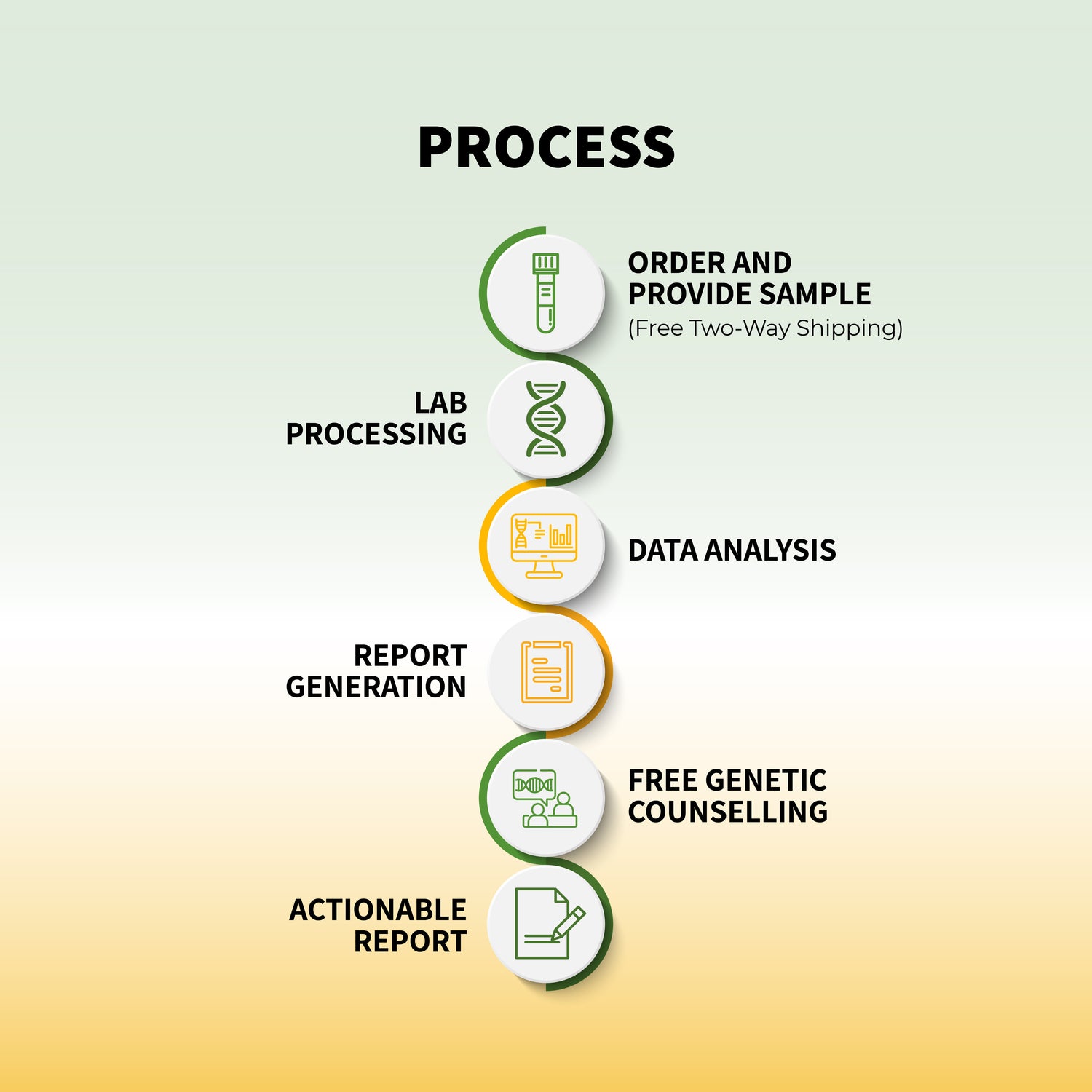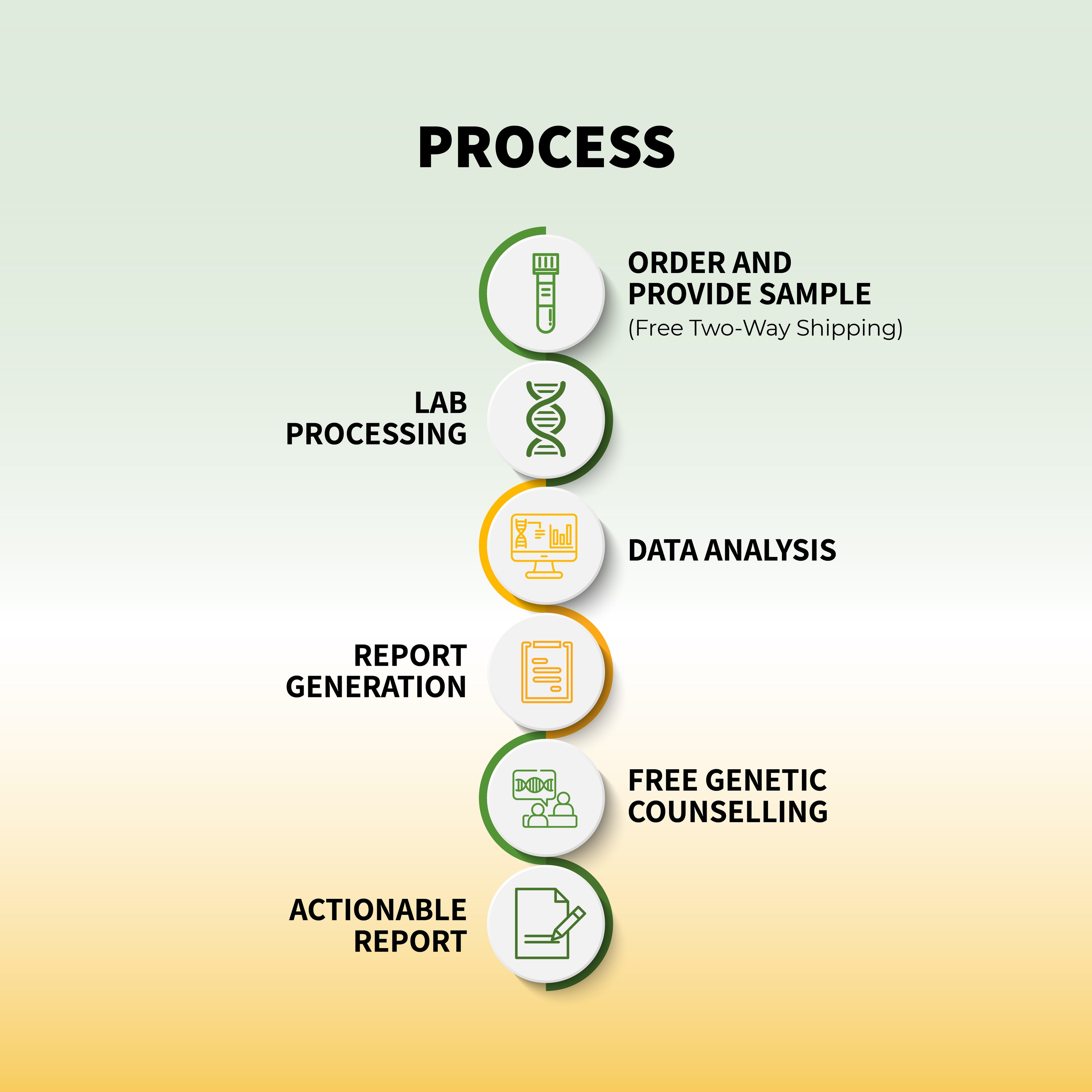In today’s fast-paced world, lifestyle diseases have become a significant health challenge, affecting millions of people worldwide. From diabetes to hypertension, heart disease, and obesity, these conditions are largely influenced by our modern-day habits. But did you know that your DNA could hold valuable insights into your risk of developing these diseases? Genetic testing for lifestyle diseases is an emerging tool that can help predict and manage these conditions before they become a serious threat to your health.
In this blog, we will explore how genetic testing can help identify the risk of lifestyle diseases, the role of DNA in shaping our health, and how genetic insights can guide personalized prevention and treatment plans.
What Are Lifestyle Diseases?
Lifestyle diseases, also known as non-communicable diseases (NCDs), are conditions that arise due to unhealthy behaviors, such as poor diet, lack of physical activity, smoking, and excessive alcohol consumption. Some of the most common lifestyle diseases include:
- Type 2 Diabetes: Often linked to poor diet, obesity, and lack of exercise, diabetes affects the body’s ability to regulate blood sugar levels.
- Hypertension: High blood pressure is frequently a result of poor dietary habits, stress, and sedentary lifestyles.
- Heart Disease: Unhealthy diets high in saturated fats, lack of exercise, and smoking can lead to heart-related complications.
- Obesity: A condition resulting from excess body fat, often caused by overeating and inactivity.
While these diseases are largely influenced by lifestyle factors, genetics also play a key role in determining who is more susceptible.
The Role of Genetics in Lifestyle Diseases
Although lifestyle diseases are primarily driven by our habits, genetic factors can significantly contribute to an individual’s risk. Some people may be genetically predisposed to certain conditions, which means that even with a healthy lifestyle, they could still be at risk due to their DNA.
For example, type 2 diabetes can run in families, meaning that if your parents or siblings have it, you’re more likely to develop it too. Similarly, hypertension and heart disease may have genetic components that increase your likelihood of developing them.
This is where genetic testing for lifestyle diseases comes into play. By analyzing specific genes, genetic testing can provide valuable insights into your personal risk profile, allowing for more targeted and effective prevention strategies.
How Genetic Testing for Lifestyle Diseases Works
Genetic testing involves analyzing specific parts of your DNA to identify variations that may increase your risk of developing certain diseases. These variations, known as genetic markers, can provide insights into how your body functions and how it may respond to environmental factors, such as diet and exercise.
When it comes to lifestyle diseases, genetic testing looks for markers associated with conditions like:
- Type 2 Diabetes
- Hypertension
- Obesity
- Heart Disease
- High Cholesterol
Once you undergo genetic testing, the results can help you understand your personal risk factors. This information can then be used to create a personalized prevention plan that addresses your unique genetic profile.
The Benefits of Genetic Testing for Lifestyle Diseases
Genetic testing offers several benefits when it comes to managing lifestyle diseases:
-
Early Detection and Prevention
Genetic testing allows for early identification of individuals at higher risk for lifestyle diseases. By understanding your genetic predisposition, you can take proactive steps to prevent the onset of these conditions. For example, if you discover you’re at risk for diabetes, you can adopt healthier eating habits and increase physical activity to lower your risk. -
Personalized Health Plans
Since everyone’s genetic makeup is unique, so too are the best approaches to managing health. Genetic testing helps healthcare providers create personalized health plans based on your genetic risks, lifestyle, and family history. This targeted approach can lead to better health outcomes and reduced risk of disease. -
Empowerment through Knowledge
Knowing your genetic risk can empower you to make informed decisions about your health. For instance, if your test results show a heightened risk for hypertension, you may be more motivated to adopt a low-sodium diet and monitor your blood pressure regularly. -
Better Understanding of Disease Progression
For those already living with lifestyle diseases, genetic testing can provide insights into how the condition may progress. This can help healthcare providers tailor treatment plans and adjust medications to suit your specific needs.
Lifestyle Diseases and Personalized Prevention Strategies
Once you’ve received the results of your genetic test, what’s next? The key to preventing lifestyle diseases lies in addressing both genetic and environmental factors. Here are a few personalized prevention strategies based on your genetic test results:
-
Dietary Modifications
If your genetic test shows that you’re at risk for diabetes or heart disease, adopting a healthy diet low in sugars and saturated fats is essential. Personalized diet plans that consider your genetic makeup can help you achieve the best results. -
Regular Exercise
For those with a genetic predisposition to obesity or hypertension, regular physical activity is crucial. Your healthcare provider may recommend a specific exercise plan based on your genetic profile to help manage weight and improve cardiovascular health. -
Medical Monitoring
If your test results indicate a higher risk for lifestyle diseases, regular medical check-ups and screenings are important. Monitoring key health metrics, such as blood sugar levels and blood pressure, can help catch early signs of disease. -
Stress Management
Stress is a major contributor to lifestyle diseases, especially heart disease and hypertension. If your genetic profile shows susceptibility to these conditions, stress management techniques, such as meditation and yoga, can play a significant role in prevention.
Who Should Consider Genetic Testing for Lifestyle Diseases?
Genetic testing is particularly beneficial for individuals who:
- Have a family history of lifestyle diseases, such as diabetes or heart disease.
- Are concerned about their risk due to lifestyle factors, such as poor diet or lack of exercise.
- Want to take a proactive approach to their health and prevent the onset of chronic conditions.
By providing valuable insights into your genetic predispositions, genetic testing allows you to take control of your health and adopt personalized strategies to reduce your risk of lifestyle diseases.
Conclusion
While lifestyle diseases are often influenced by factors like diet, exercise, and stress, genetics also play a crucial role in determining your risk. Genetic testing for lifestyle diseases provides valuable insights into your DNA, helping you understand your personal risk factors and empowering you to take preventive action.
Whether you’re concerned about diabetes, hypertension, or heart disease, genetic testing can be a powerful tool in managing your health and preventing the onset of chronic conditions. By combining genetic insights with healthy lifestyle choices, you can take control of your future and reduce the risk of lifestyle diseases.

















